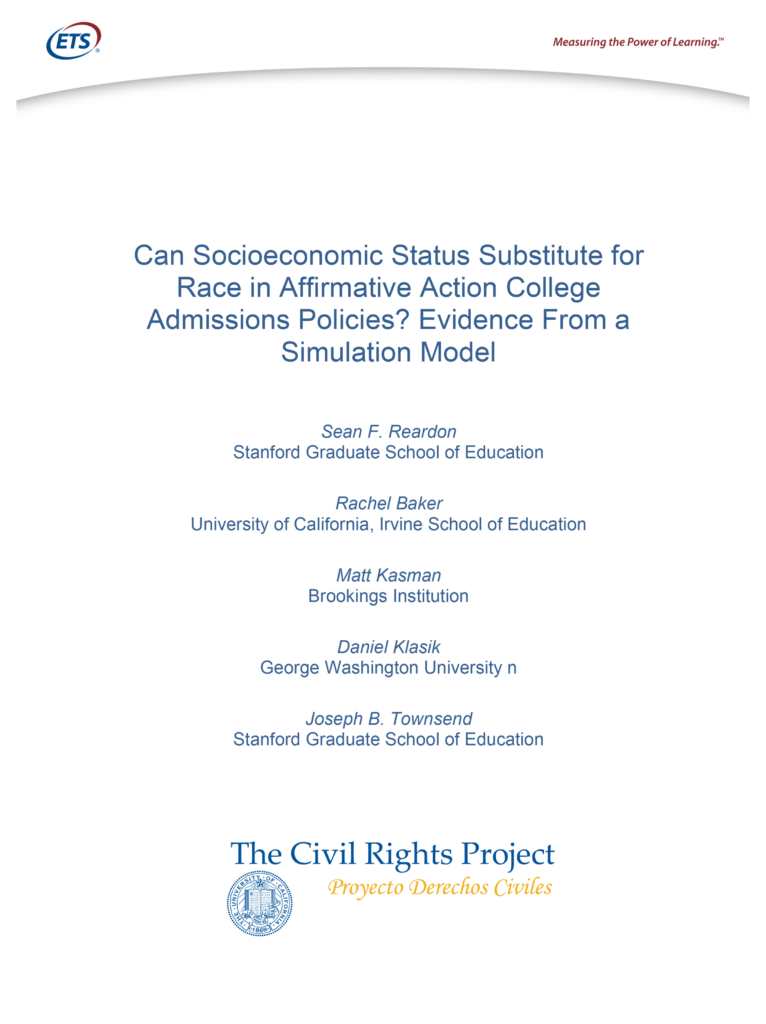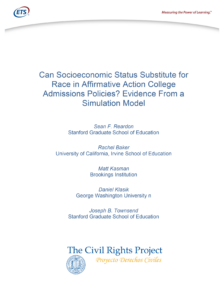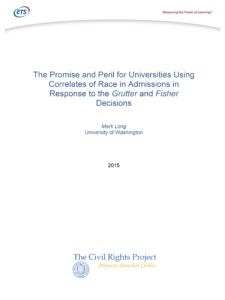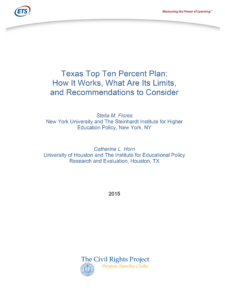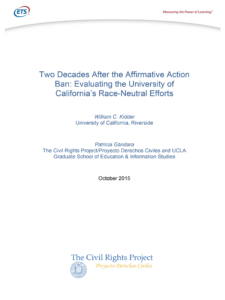Abstract
This paper simulates a system of socioeconomic status (SES)−based affirmative action in college admissions and examines the extent to which it can produce racial diversity in selective colleges. Using simulation models, we investigate the potential relative effects of race- and/or SES-based affirmative action policies on the racial and socioeconomic distribution of students in colleges. These simulations suggest 3 important patterns: (a) practical SES-based affirmative action policies do not yield nearly as much racial diversity as do race-based policies; (b) there is little evidence that affirmative action policies produce systemic academic mismatch; on average, affirmative action policies do not sort minority students into colleges for which they are academically unqualified; and (c) the use of affirmative action policies by some colleges affects enrollment patterns in other colleges.
This brief and three others are the result of a collaboration between the Civil Rights Project and the Educational Testing Service, Strengthening Campus Diversity: How Do We Address This Important Issue? The four issue briefs discuss how college campuses can attempt to maintain and expand diversity within a legal framework.
The other three briefs are:
- “Two Decades After the Affirmative Action Ban: Evaluating the University of California’s Race-Neutral Efforts,” by William C. Kidder (UC Riverside) and Patricia Gándara (UCLA, CRP Co-director).
- “Texas Top Ten Percent Plan: How It Works, What Are Its Limits, and Recommendations to Consider,” by Stella M. Flores (New York University) and Catherine L. Horn (University of Houston).
- “The Promise and Peril for Universities Using Correlates of Race in Admissions in Response to the Grutter and Fisher Decisions,” by Mark Long (University of Washington).
In compliance with the UC Open Access Policy, this report has been made available on eScholarship:
